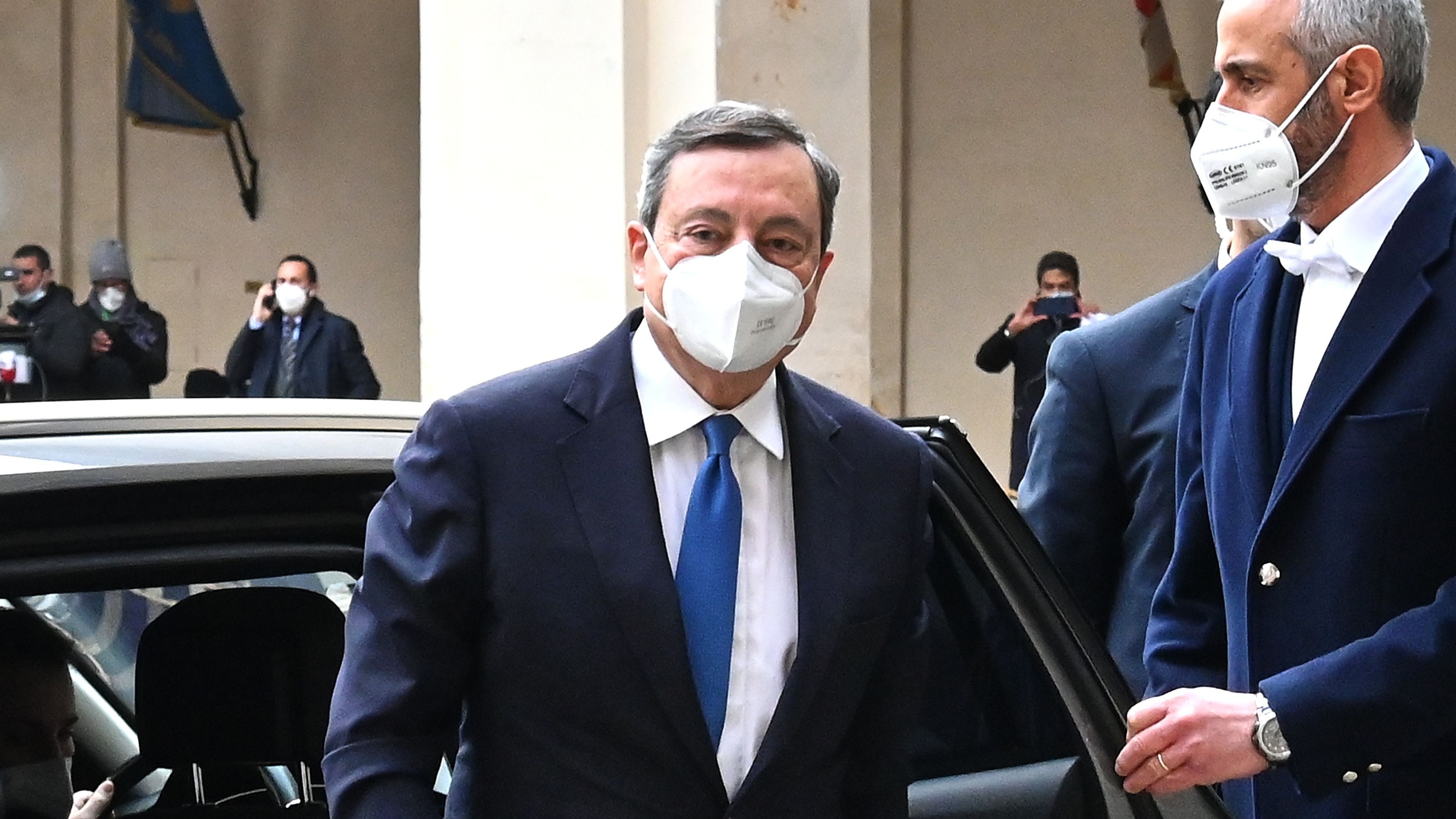Can ‘super’ Mario Draghi rebuild Italy’s government?
Former European Central Bank chief accepts mandate to form new coalition

A free daily email with the biggest news stories of the day – and the best features from TheWeek.com
You are now subscribed
Your newsletter sign-up was successful
The economist dubbed “Super Mario” after saving the euro has agreed to form a new unity government tasked with keeping Italy afloat during the coronavirus pandemic.
Italian President Sergio Mattarella summoned Mario Draghi for talks today, after the ruling coalition collapsed earlier this month when former prime minister Matteo Renzi withdrew the support of his Italia Viva party.
Who is ‘super’ new leader?
The Week
Escape your echo chamber. Get the facts behind the news, plus analysis from multiple perspectives.

Sign up for The Week's Free Newsletters
From our morning news briefing to a weekly Good News Newsletter, get the best of The Week delivered directly to your inbox.
From our morning news briefing to a weekly Good News Newsletter, get the best of The Week delivered directly to your inbox.
Draghi is an economist and central banker who served as president of the European Central Bank (ECB) from 2011 to 2019. He had previously held a string of senior economic positions in Italy, including a six-year stint as governor of the Bank of Italy from 2005.
As head of the ECB, Draghi “helped to calm markets and stave off a collapse of the euro” in the aftermath of the 2008 financial crash, pledging to do “whatever it takes” to save the EU’s currency, The Times reports.
However, “he has largely vanished from the public eye since his ECB term ended”, says The Telegraph, and unlike other figures vying for political power, is untarnished by the in-fighting that has dogged the Italian government during the pandemic response.
Given his unsullied reputation, Draghi is expected to be a popular choice among voters to lead a new coalition.
A free daily email with the biggest news stories of the day – and the best features from TheWeek.com
The New York Times (NYT) notes that until he met with Mattarella today, the idea of Draghi taking the reins “remained a pipe dream for the many Italians frustrated with a governing coalition that seemed paralysed by ideological schisms and incompetence”.
Challenges ahead
Although he is a well liked and respected figure on the Italian political scene, Draghi will inherit a series of challenges that will require swift and effective action.
With Prime Minister Giuseppe Conte set to depart the stage, speculation is growing as to whether the new coalition will be made up of figures from “the parties supporting Draghi, or an all-star cast of politically unaffiliated economists, judges and scientists”, the NYT says.
The new leader will also have to get on top of the “health, economic and political turmoil battering Italy”, The Telegraph adds.
The Italian economy has nosedived during the pandemic, with newly released figures from national statistics bureau Istat revealing that the country’s GDP fell by 8.8% in 2020 - the sharpest annual decline since the Second World War.
Draghi is “no political novice” and has overcome a series of major obstacles during his long career, the NYT says.
Yet Conte also “proved himself a deft operator but in the end could not survive Rome’s eternal political machinations”, The Times adds.
Joe Evans is the world news editor at TheWeek.co.uk. He joined the team in 2019 and held roles including deputy news editor and acting news editor before moving into his current position in early 2021. He is a regular panellist on The Week Unwrapped podcast, discussing politics and foreign affairs.
Before joining The Week, he worked as a freelance journalist covering the UK and Ireland for German newspapers and magazines. A series of features on Brexit and the Irish border got him nominated for the Hostwriter Prize in 2019. Prior to settling down in London, he lived and worked in Cambodia, where he ran communications for a non-governmental organisation and worked as a journalist covering Southeast Asia. He has a master’s degree in journalism from City, University of London, and before that studied English Literature at the University of Manchester.